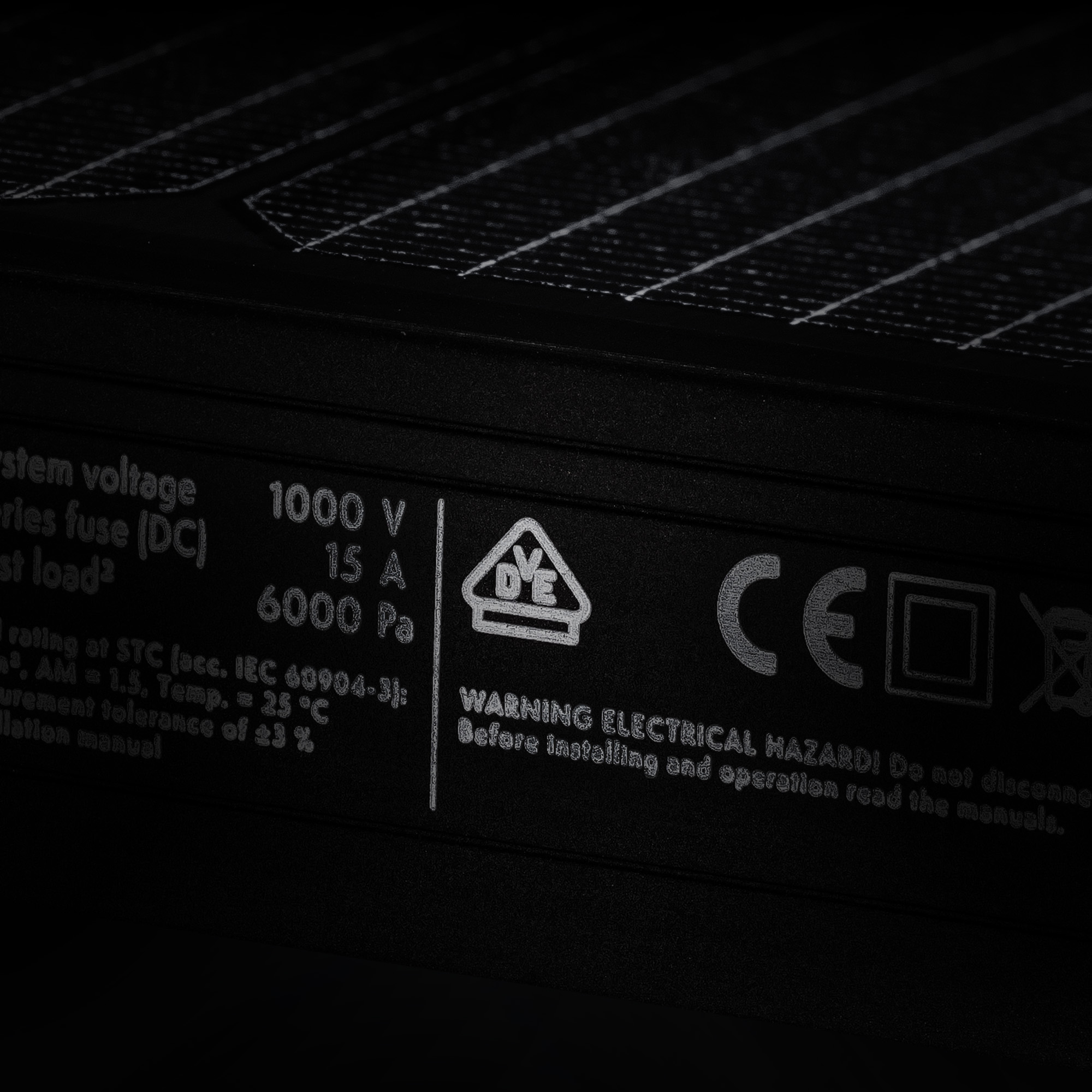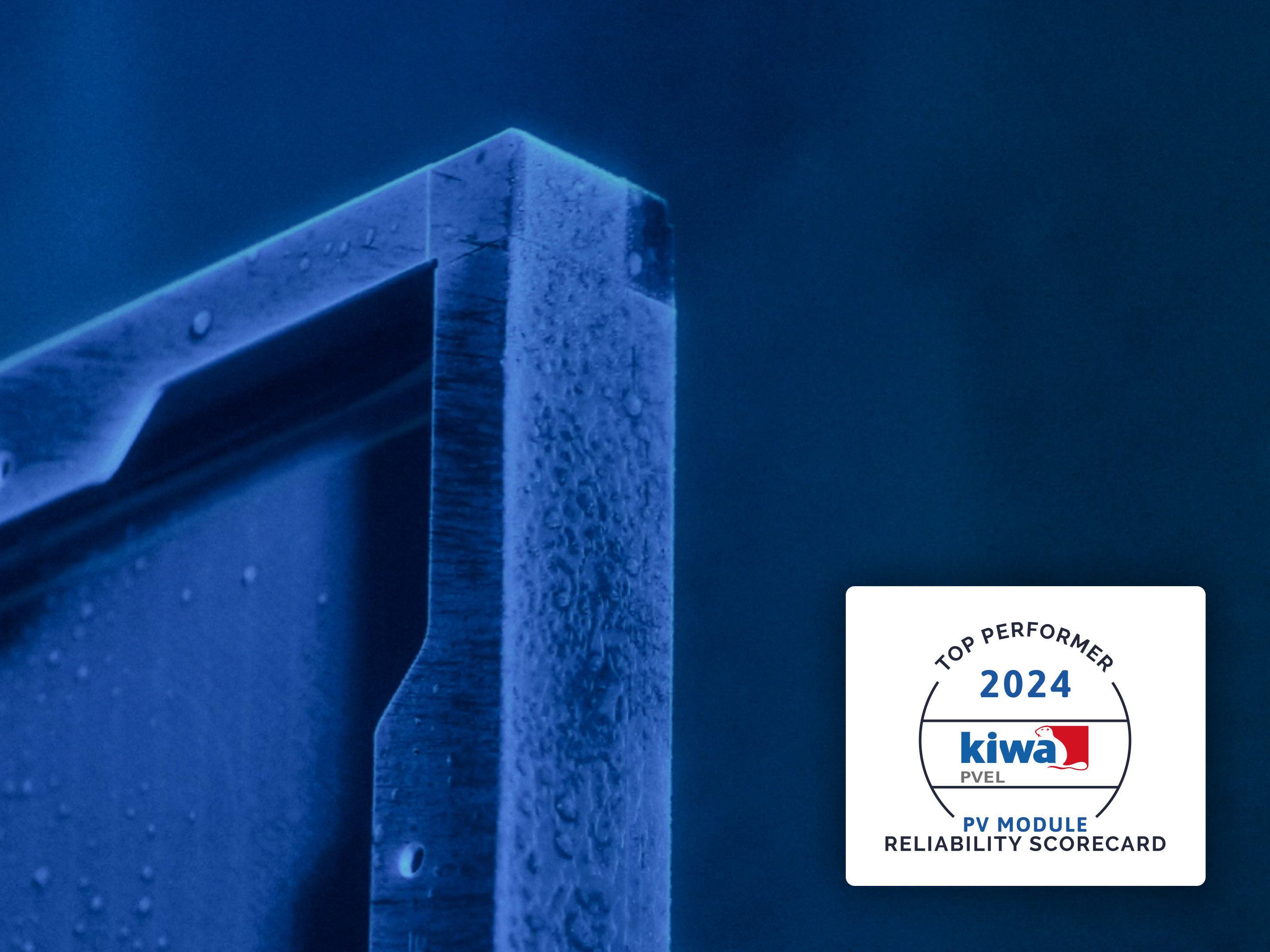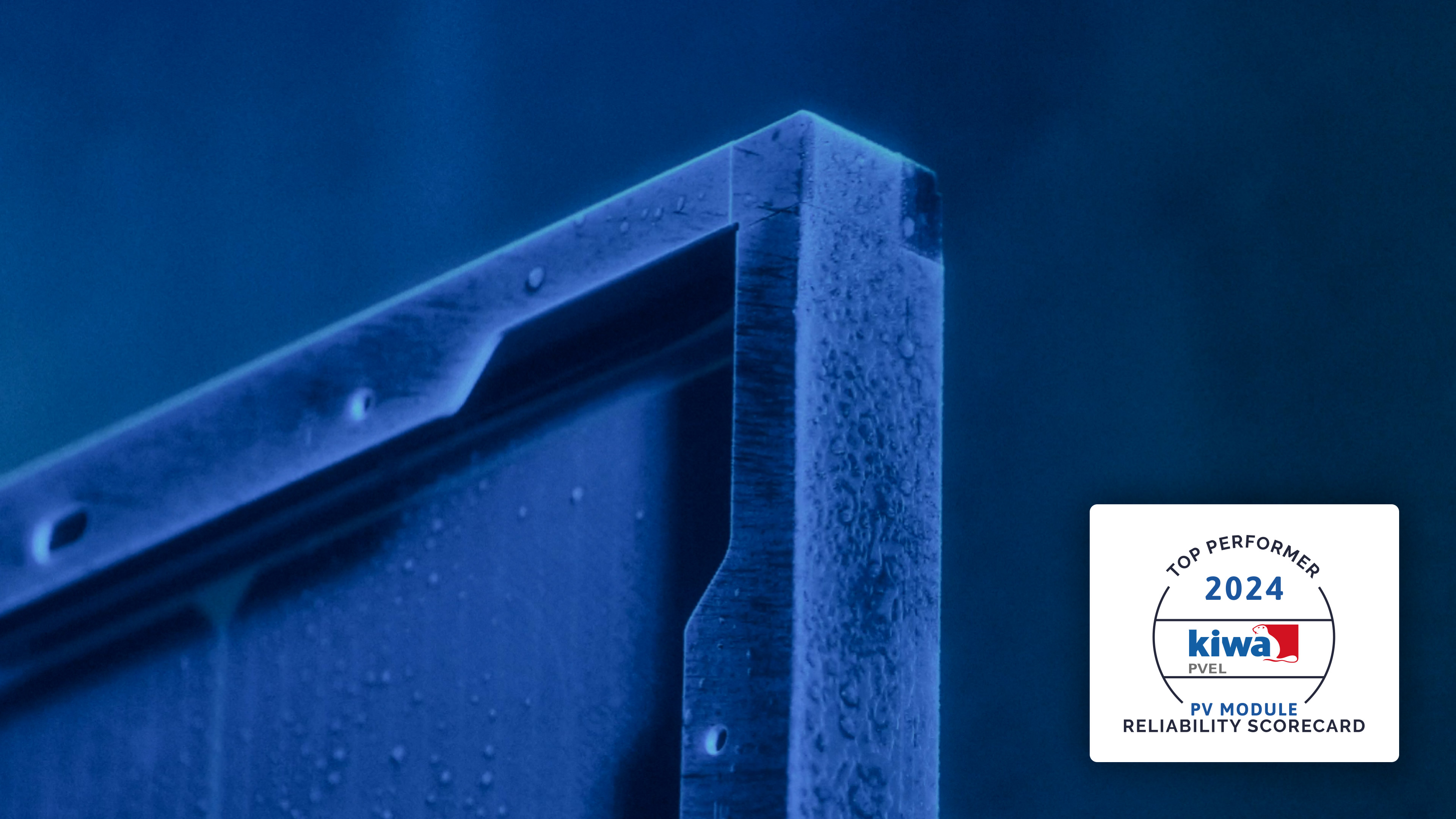For our solar modules is threefold simple.
Meeting the standards is one thing, far exceeding the compliance criteria is Meyer Burger's business. We are one of the few manufacturers to have an IEC-certified module test center, which plays a decisive role in daily testing and product development. Here we push our solar modules to the limit in stress and endurance tests, pushing them to their physical and technical limits and beyond. We test with three times the intensity, because with the right energy, anything is possible. To put it in a nutshell. Meyer Burger tested means IEC standard times three.
After all, in most cases the purchase of a solar system is a decision for life.
Extremely cool in the climate and temperature chamber.
Solar modules from Meyer Burger deliver top performance even under dynamic weather and atmospheric conditions. To ensure that this remains the case, we treat our products with moist and dry heat and carry out humidity, frost and thermal shock tests.
Depending on the test, the temperatures vary between -40 °C and 85 °C with variable or constant humidity of up to 85 %. During the tests, which last up to 3,000 hours, heat and frost alternate up to 600 times.
Absolute top performance regardless of weather and conditions
-40 °F to 185 °F
Temperature range
85 %
Variable/constant humidity
600 ×
Temperature change per test run
2,400 - 3,000 h
Endurance test
Best performance even under the highest pressure
To ensure that our modules offer the greatest possible stability and resistance to snow and storms, we carry out dynamic and static load tests with up to 6,000 Pascal pressure and 4,000 Pascal suction and up to 1,000 cycles with 1,000 Pascal.
Today it can rain, storm or snow.
1,000 - 6,000 Pa
Compressive load
1,000 - 4,000 Pa
Suction load
9 - 3,000
Repetitions/cycles
1 - 9 h
Endurance test
Bathed in sunlight and concentrated on UV rays
Our solar modules should still have maximum performance capacity and generate the highest energy yields even when they are old. To achieve this, we specifically expose our modules to artificial sunlight and test them for hotspots in endurance tests. This is because the less solar modules degrade and the less susceptible they are to the formation of hot cell areas, the higher their performance stability and energy yield. Among other things, the entire module surface is irradiated by twelve high-power lamps with 1,000 W/m² and 1,300 W/m² for bifacial applications. For maximum UV-resistant materials and adhesive bonds, we test with a UV dose of 60 kWh. This corresponds to the annual equivalent of UV radiation in Central Europe.
Maximum performance stability and continuous operation without hotspots
1,000 - 1,300 W/m²
Irradiation
4 h
Hotspot check
60 kWh
UV dose
20 kWh/m²
Test for light-induced degradation (LID)
Absolutely unbreakable under fire
Our promise: maximum protection against damage during transportation, installation and storms such as heavy rain and hail. To keep this promise, we set ourselves the highest standards for module breakage testing and hail impact.
For example, the 100.3 lb weight swings against the glass surface at least three times without leaving any visible or measurable damage. In addition, we at Meyer Burger are only satisfied when a hailstone with a diameter of 35 mm accelerated to 97.9 km/h (that is 27.2 m/s) does not cause any damage to the module at eleven hit positions.
There is no bad weather for good modules.
35 mm
Hailstone diameter
61 mph
Shooting speed
11
Hit positions
100.3 lb
Pendulum weight
Gives fire the cold shoulder
At Meyer Burger, we rely on the expertise of independent fire protection specialists to ensure the best protection against burn-through or dripping materials and to reduce the risk of our solar modules themselves becoming a source of danger or fire in the event of a fire. We have our modules tested in fire tests lasting up to ten minutes with 600 - 760 °C hot fire baskets and gas flames. And with success. Meyer Burger solar modules comply with the required fire protection classes and are approved in all EU countries.
So that nothing can burn
600 - 760 °C
Target temperatures
6 - 10 minutes
Burning time
up to 4
Passages
2
Standard tests (UL/IEC)
Meyer Burger Quality & Certification Lab: VDE recognized testing and certification laboratory with internationally leading quality standard

At the Meyer Burger Quality & Certification Lab in Freiberg, we operate over 40 state-of-the-art test benches for electrical, mechanical and optical measurements. Our solar modules and solar roof tiles are tested internally in accordance with IEC standard 61215-2. They undergo particularly critical material and module tests several times, but at least three times. The laboratory, which is certified and recognized by the VDE Institute, comprises around 50 test procedures on over 500 m² of laboratory space and guarantees the highest performance and maximum performance stability for up to 30 years.
The Meyer Burger Quality & Certification Lab is equipped with high-tech measuring and test rigs, including spectrometers, flashers, UV and solar simulators, climate chambers, temperature shock test cabinets, hail shot systems and mechanical load systems. For certain tests, such as fire and flame tests, we work with renowned partners such as MPA Dresden GmbH to test and certify modules in accordance with national and European standards.
Meyer Burger goes beyond meeting standards and focuses on the highest intensity in its tests. Stress and endurance tests push our solar modules to their physical and technical limits. We strive for perfect harmony between cell and module by using the best materials and carrying out material tests above and beyond the standard. Internal tests with an above-average number of test samples and extra-long runtime simulations deliver exact test results and verified long-term qualifications. Our PV products not only meet the highest performance requirements, but also design and aesthetic requirements, thanks to 360° visual inspections that reveal even the smallest deviations.
Once is not enough for us twice.
Temperature change
(4 h heating or cooling phase I -40 °C ⇿ 85 °C)
IEC standard: 200 cycles / 800 h
Meyer Burger: 600 cycles / 2,400 h
Humidity-heat
(constant 85 °C and 85 % relative humidity)
IEC standard: 1,000 h
Meyer Burger: 3,000 h
Humidity-freeze
(0.5 h -40 °C I 20 h 85 °C I 85 % relative humidity)
IEC standard: 10 cycles / 240 h
Meyer Burger: 30 cycles / 720 h
Static mechanical load
(6,000 Pa pressure, 4,000 Pa suction)
IEC standard: 6 cycles / 6 h
Meyer Burger 18 cycles / 18 h
Dynamic mechanical load
(1,000 Pa pressure and suction)
IEC standard: 2,000 cycles
Meyer Burger: 6,000 cycles

